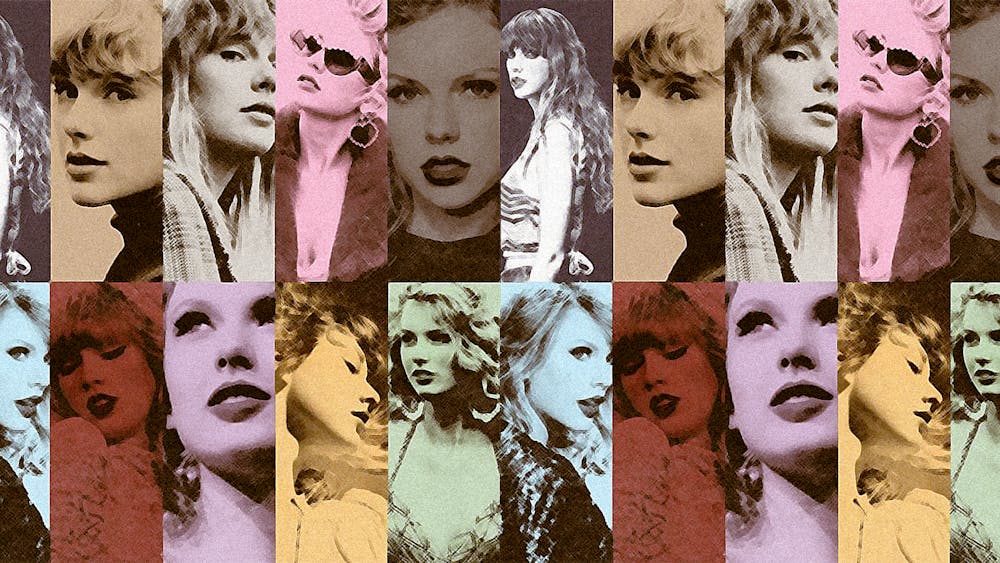My whole life, Taylor Swift has been an omnipresent refrain in my life. As each new album was released, everyone in my life—be it classmates, family members, or coworkers—would arrange listening parties and obsess for hours about the intricacies of each song, lyric, and supposed easter egg. All that time, I was left out, declining to participate as Swiftie culture conquered nearly everything around me.
For a while, I didn’t have any strong feelings about sitting out of this particular subculture. I didn’t have any particular dislike of her music; when a Swift song played at a frat party, I nodded my head just like everyone else. I just neglected to care. But over time, my refusal to independently engage with Swift’s music became a sort of stubborn and contrarian point of pride.
But during the first few weeks of summer break, I said no more, enlisting the help of an expert guide—who served as a daily sounding board for my thoughts. Soon an experiment emerged, as I listened through all of Swift’s entire discography from beginning to end, carefully calibrating and analyzing this new world of pop culture.
The Early Stuff: Taylor Swift (Debut), Fearless (Taylor’s Version), Speak Now
Across these three albums, Swift is coming of age before our very ears, both literally and figuratively. We see the transition from the homey country of her self–titled debut through the poppier tones of albums like Speak Now. Listening through these albums, this experiment is off to a good start
But there are still a lot of rough edges to be sanded off. The Taylor’s Version of Fearless can feel repetitive at times, and there are songs in Speak Now when it feels like Swift is still trying to find the right words to say what she wants to. While I know this is an unpopular opinion, I actually liked Taylor Swift the most out of these three. Listening to it for the first time as an adult with only two years left before entering “the real world,” I now yearn for the simpler times of years gone by when my problems weren’t so big.
The Middle Period: Red (Taylor’s Version), 1989, Reputation, Lover
These four albums signify Swift at the height of her powers, when her music became much more upbeat. Of course, instead of listening to these albums as they came out over the course of the 2010s, my media consumption instead consisted mostly of Star Wars cartoons, conspiracy videos on YouTube, and CNN’s political coverage. But, I seemed to have missed out as this was also the period where my two favorite albums—Red and 1989—come from, which only offer banger after banger.
But as great as Red and 1989 are, Reputation falls short. The songs feel much more motivated by a catchy beat than meaningful lyrics, and the end result is an amorphous mid–2010s pop sound that could have come from any other artist, which is why it ended up being my least favorite album. Fortunately, Lover marked somewhat of a comeback for me, with its uplifting beats providing a more–than–fitting capstone to her discography.
The Newest Albums: Folklore, Evermore, Midnights (3 am Edition)
These three most recent albums represent an incredibly hard shift away from the trend line of Swift’s first seven albums, which was moving very far towards pop. And I am here for it. Evermore is probably the one closest to my personal taste, featuring my favorite band The National. I found a deep elegance in its simple rhythms and stories, which made for very easy listening. Folklore has a lot of the same characteristics, but at times it just feels a bit unfinished.
And then, with Midnights, Swift went back a bit in the pop direction but retained the soulful core of her two COVID–19–era works. Since I first listened to it, it’s really grown on me, just as Swift herself.
Final Thoughts
This is by no means an objective experiment, but then again it's the subjectivity of music—and culture at large—that makes it so special. With this first listen coming in my early 20s, not my teens, I’m approaching her music from a different viewpoint, with more life experience and more certainty about my future. But while I’ve yet to be full–on converted to Swift–ism, despite the years it's taken me, I've finally been able to shake off my reputation and become a lover.







